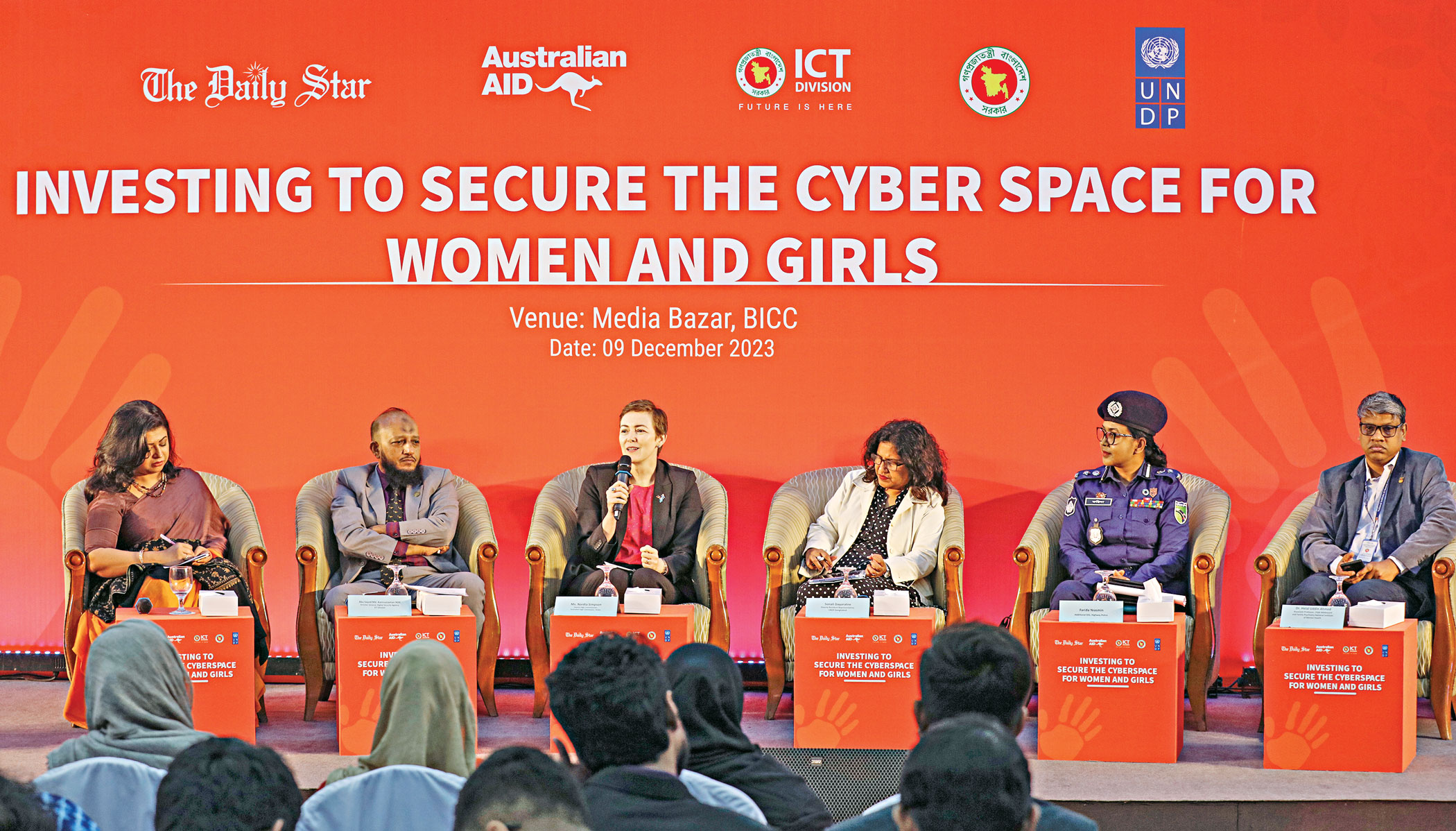Women’s right to free speech is under threat in online spaces

What led me to lock my Facebook profile was a slow accumulation of bitter incidents – unsolicited photographs of genitals, strangers lobbing obscenities in the comments, and messages that made my skin crawl with the chill of knowing that, as a woman, my very presence online is perceived as an offence. And yet, as a writer, I feel compelled– perhaps even obligated– to speak, to offer my modest two cents on matters that stir me. But even those small offerings are enough to summon a torrent of verbal bile, so wildly disconnected from the substance of my words that it becomes clear: the attack is not on the argument but on the audacity of my expression.
When a woman raises her voice against the status quo, she is not merely heard as a dissenting citizen but first, unfailingly, as a woman, and then, only incidentally, as a rebel. Her defiance is not evaluated for its merit but for its audacity. And in that space where disagreement ought to invite dialogue, a single, brutal word is often flung to end all conversation: rape. The threat of it, the invocation of it, shushes women. It has long served as the most chillingly effective tool in the arsenal of those determined to keep women silent, and still, it works.
When a man dares to speak against the status quo, he may be met with hostility—coarse insults, the promise of a black eye, and perhaps a few garden-variety threats tossed from the safety of anonymity. But rarely, if ever, is he met with the r-word. That particular threat is not in the arsenal reserved for men. For women, it comes first—before reason, debate, and consideration of what she has actually said. It is less of a rebuttal and more of a ritual, a brutal way to remind her that before she is a mind, she is a body and a body that can be punished.
Listening to Nourin Sultana Toma, a fourth-year student at Dhaka University, posed a serious concern: how rape threats are used as a tool. She claims, "I have been the target of body shaming, rape threats, and pornographic deepfake videos using my face. These are employed as tools of domination." According to her, these individuals intimidate women who attempt to voice their opinions by threatening to rape them. She finds it painful that rape is being used as a political tool.
Rape threats, alongside more insidious forms of sexualised violence—such as the non-consensual use of a woman's face to fabricate pornographic videos—are not merely expressions of malice; they are warnings designed to remind women that their presence in public discourse is conditional.
Nourin recalls two recent instances: one in which she opposed Mostafa Asif Arnab's release after he was charged with harassing a female student on the DU campus and the other in which she objected to the use of elephants in the DU Eid procession. "I have received rape and death threats for talking about these incidents," she claims. This detracts from the primary concern and deters individuals from engaging in productive discussions.
A familiar pattern runs through these conversations: a woman raises an important issue, only for the focus to shift entirely. Instead of engaging with her argument, commenters warn her to be careful, imply danger, or hint at something awful that might happen to her (in the guise of concern). The original topic is pushed aside, and suddenly, the conversation becomes about her gender—about misogyny—not the issue she was trying to discuss in the first place.
Asmita Mehefin, a third-year student at BRAC University, says, "The fact that we are reduced to objects and our value in this society can be taken away by someone else touching us without consent and violating us makes my skin crawl. Sometimes even after being on the receiving end of a crime, you're the one who is blamed and shamed. It makes me really angry and fills me with rage, honestly."
Victim blaming is nothing new to women. When a woman speaks out about the threats she has received, people often respond with a smirk, pointing to the photos she has posted or how she looks – as if to suggest she brought it on herself and the abuse is somehow deserved.
A graduate student of Jahangirnagar University, Sneha Talukdar*, indicated that she had been subjected to bullying, slut-shaming, trolling, and rape threats over the previous seven or eight years. However, recently, there has been an increase in everyday abuse directed at her via bot accounts, bogus Facebook pages, comment sections, and inbox messages. She no longer dreads the onslaught, since it has become usual.
But what does all this mean for the interviewees' freedom of speech? Are they paralysed by fear, silenced before they can speak—or do they persist, raising their voices in protest despite the threats of sexual violence? The answers, as ever, are varied.
Asmita puts it succinctly, "There are times I have questioned if writing this poem and publishing it would result in slut shaming and rape threats. There is a constant fear that works in favour of misogynists and patriarchal institutions."
Self-censorship to prevent rape threats means compromised freedom of speech. Asmita adds, "Specifically, if I write a poem in a language which is more accessible to people, that makes the fear of receiving threats more prominent. There are times I have watered down my writing to make it more palatable to people so that I don't get threats."
On the other hand, Nourin realised that to remain in the political realm of a patriarchal country, she would have to continue fighting. She says, "When I started to write online, I witnessed women who spoke online being subjected to harsh consequences, but that did not deter me. These threats could not make me falter. I try not to think about whether I will receive rape threats or not if I post certain things. I have received rape threats for writing the simplest of things. So why should I bother thinking about receiving rape threats?"
But she emphasises the fact of the ever-present existence of rape-threat culture. She laments that the fear of receiving rape threats prevents women from coming forward. Nourin says, "I may have been able to overcome this reality of being a woman living in Bangladesh, but this is an exception."
These testimonials reveal an ongoing practice of harassment; they also expose a strategy for suppression. An infrastructure of dread created using rape threats, doctored pornography, and the persistent policing of female expression. These women are more than just victims of online harassment; they are the collateral of a society that is alarmed not by violence but by the audacity of a woman speaking her opinion. And in this grim equation, to be a woman and vocal is to court danger; to persist is resistance itself.
But resistance must not be the burden of the silenced alone. If our government claims to uphold the right to free speech as enshrined in our constitution, then it must reckon with the reality that women are being systematically denied that right. Let us not forget that rape threats are political tools.
Authorities must act with urgency and resolve: to investigate these threats, hold perpetrators accountable, and make the online space a terrain where women can speak without fear. Anything less is complicity. And silence, at this point, is no longer neutral; it is violent. Those who stand by, who choose not to take an active stance against such abuse, are not outside the problem – they are part of it, enabling a culture that thrives on their silence.
Azra Humayra is majoring in Mass Communication and Journalism at the University of Dhaka. Find her at: azrahumayra123@gmail.com



 For all latest news, follow The Daily Star's Google News channel.
For all latest news, follow The Daily Star's Google News channel. 

Comments